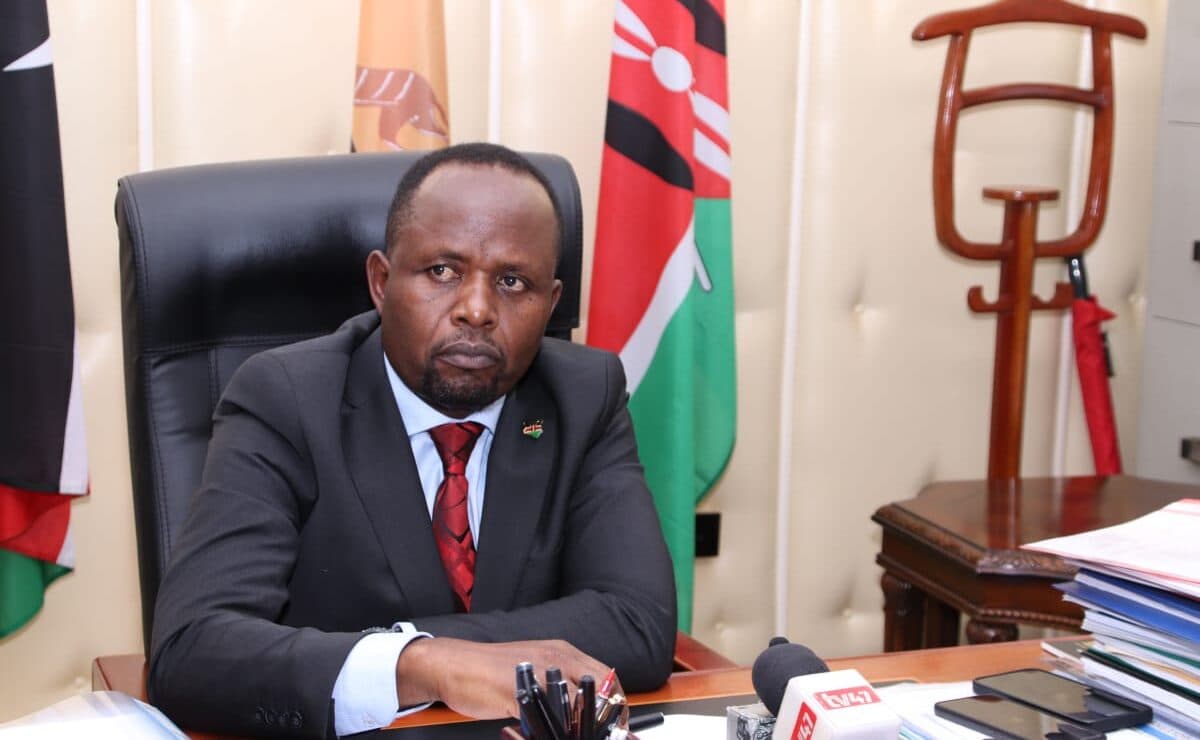We're loading the full news article for you. This includes the article content, images, author information, and related articles.
Trans-Nzoia Governor George Natembeya has voiced strong disappointment over the low voter registration turnout in the county, with only 71 new voters recorded five days into the national exercise.

Trans-Nzoia Governor George Natembeya on Friday, October 3, 2025, expressed significant frustration over the low voter registration numbers in his county, revealing that only 71 individuals had registered by the fifth day of the national exercise. Speaking at a function in Kwanza Sub-County, Governor Natembeya highlighted the particularly dismal figure of just four new registrants in Kwanza Constituency.
“Watu ambao wameregister Trans Nzoia mzima kama wapiga kura ni 71; niliona nikatoa machozi. Sasa hata mkisema Natembeya aende mbele nitaenda na nani! Watu ambao wameregister Kwanza Constituency ni watu 4,” Natembeya stated, underscoring his dismay at the low turnout.
The Independent Electoral and Boundaries Commission (IEBC) commenced a nationwide continuous voter registration drive on Monday, September 29, 2025, targeting an estimated 6.3 million new voters, primarily young people, ahead of the 2027 General Election. This exercise aims to expand the current 22.1 million-strong voter register. The IEBC plans to register 113,770 new voters in Trans-Nzoia County as part of this campaign, with a projection to reach 512,715 total registered voters by 2027, up from 398,981 in the previous election.
The registration process is being conducted across all 290 constituencies, with services available at Huduma Centres and IEBC constituency offices from Monday to Friday, 8 AM to 5 PM EAT. Eligible voters must be Kenyan citizens aged 18 and above, possess a valid national ID or passport, and not be previously registered.
Governor Natembeya has been actively campaigning for increased voter registration, particularly among the Luhya community, framing it as an opportunity to translate their numbers into political power. He has positioned himself as a key figure in Western Kenya's political landscape, using voter registration drives to advocate for a shift in regional leadership.
Despite these efforts, the low turnout in Trans-Nzoia mirrors a broader trend of low engagement observed in other parts of the country during the initial days of the registration drive. Deputy President Kithure Kindiki has also urged eligible voters to register, emphasizing it as their right to participate in shaping the country's future.
The low voter registration numbers in Trans-Nzoia could have significant implications for political representation and influence in the upcoming 2027 General Election. A low turnout could dilute the county's electoral power and potentially affect the outcome of local and national contests. Analysts suggest that such developments could influence near-term public debate and policy execution, with stakeholders calling for clarity on timelines, costs, and safeguards in the registration process.
The specific reasons for the low voter turnout in Trans-Nzoia and other regions remain unclear. Factors such as public awareness, accessibility of registration centers, and voter apathy could be contributing to the issue. The effectiveness of current IEBC outreach strategies and public engagement campaigns will be crucial in addressing these challenges.
Observers will be closely watching the IEBC's strategies to boost voter registration numbers, particularly in counties like Trans-Nzoia. The impact of political leaders' calls for registration and the effectiveness of public awareness campaigns will be key indicators. The IEBC's ability to meet its target of 6.3 million new voters nationally will be a critical measure of success for the ongoing exercise.
The IEBC is also considering eliminating voter cards as a mandatory requirement for voting in the 2027 General Election, proposing that individuals only need to present a national ID card or passport. This change aims to enhance efficiency and security through the use of KIEMS kits for biometric verification.
Keep the conversation in one place—threads here stay linked to the story and in the forums.
Sign in to start a discussion
Start a conversation about this story and keep it linked here.
Other hot threads
E-sports and Gaming Community in Kenya
Active 9 months ago
The Role of Technology in Modern Agriculture (AgriTech)
Active 9 months ago
Popular Recreational Activities Across Counties
Active 9 months ago
Investing in Youth Sports Development Programs
Active 9 months ago
Key figures and persons of interest featured in this article